We Will Not Provide Details About Prisoner Exchange With Iran: Washington
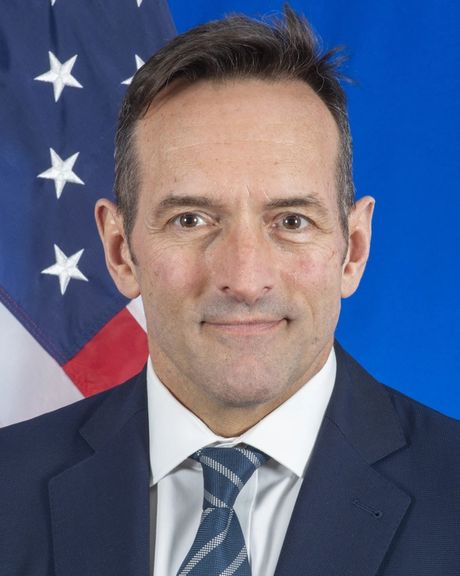
While the US State Department denies talk of a prisoner swap with Iran, a member of the media team has suggested there may be truth to the claim.

While the US State Department denies talk of a prisoner swap with Iran, a member of the media team has suggested there may be truth to the claim.
“You can imagine such discussions are sensitive and highly consequential for the US citizens who have been wrongfully detained. We will not detail any diplomatic efforts underway,” a senior official in Washington is reported to have said told Hannah Kaviani, a journalist at Radio Farda.
It comes amidst a public statement in which Washington has called Iran’s claim of a prisoner swap deal, a “cruel lie” but the latest revelations offer hope for families whose loved ones are held hostage in the Islamic Regime, that negotiations are really underway.
Roger Carstens, the US Special Presidential Envoy for Hostage Affairs (SPEHA), is on a delegation to Doha this week in which hostages are to be a major talking point, though it is unknown how many dual-national hostages are currently being held in Iran.
“Special Envoy Carstens will deliver remarks at the Global Security Forum and engage with government representatives and stakeholders on matters related to the resolution of wrongful detention and hostage cases worldwide,” the State Department added.
Iran’s Foreign Ministry Spokesman Nasser Kanaani claimed on Monday that a prisoner exchange is "feasible" and asked the US officials to be "realistic" in this regard.
"If the American side takes a realistic approach to this issue, the exchange of prisoners can be carried out as a completely humanitarian issue," he said.
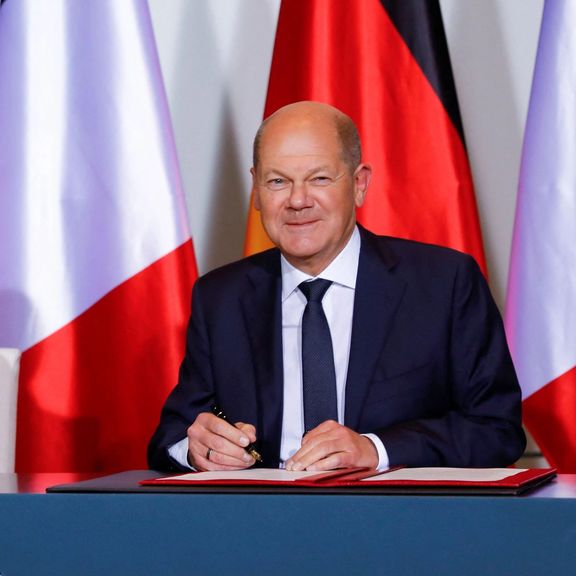
German Chancellor Olaf Scholz welcomed the agreement by Saudi Arabia and Iran to re-establish ties, but did not comment on China's role in brokering the deal.
"It is good that Saudi Arabia and Iran want to develop a less confrontational relationship with each other, and that is what can be said about it," Scholz said at a news conference on Monday alongside Bhutan's prime minister, Lotey Tshering.
Scholz's remark was one of the first by Western leaders regarding an agreement signed in Beijing on March 10, whereby Tehran and Riyadh agreed to reestablish diplomatic relations after seven years of hostility. China played the role of a broker and apparently a guarantor of the deal.
Iranian officials and media have widely portrayed the agreement as a huge defeat for the United States and Israel in the Middle East and the ascendance of China as a superior power in the Middle East.
Relations between Western states and Iran have deteriorated in the past six months and long-running negotiations over Tehran's nuclear issue came to a deadlock last September. A harsh crackdown on protests by the Iranian regime and its supply of killer drones to Russia worsened relations.
China and Europe, both dependent on oil imports, can benefit from lack of conflict in the Persian Gulf region.
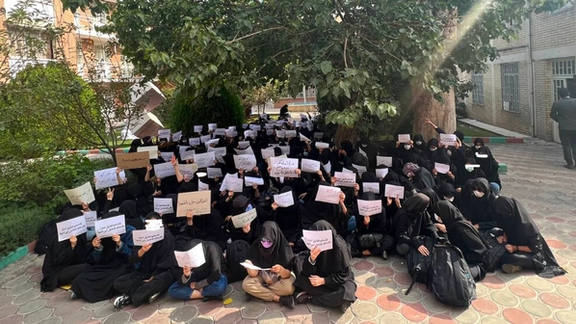
Iran’s security forces have summoned dozens of students to punish them for staging protests against the poisoning of schoolgirls across the country.
Reports from Iran say dozens more students have been banned from entering the universities of Tehran and Tabriz, a tactic which has been used throughout the Woman, Life, Freedom protests which began in September.
Having been one of the main centers of popular protests, the regime has increased the number of security agents at campuses and beefed up inspection of the students’ belongings.
According to the country's Student Union Council, 40 students of Tabriz University of Medical Sciences were summoned to the disciplinary committee after they held protests against the mysterious chemical attacks which have taken place in scores of schools and dormitories since November.
Activist Zia Nabavi claimed that last week, he and a number of other students of Allameh University in Tehran were banned from entering the campus after they staged a protest against the serial poisonings which have affected hundreds of girls across the country.
Last week, over 300 university professors condemned the organized chemical attacks in a statement, declaring that the perpetrators of the "horrible crime" are among the "cruelest, most dangerous and most hated" enemies of children and teenagers.
"This is a shame that despite claims to protect domestic and cross-border security, the government has not taken preventive measures in the face of this obvious threat to national security," read the statement.
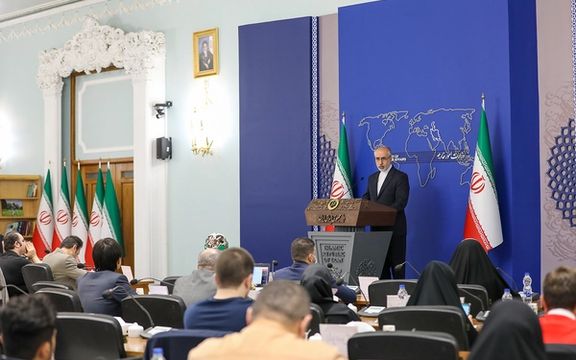
After the recent announcement of the détente with Saudi Arabia, the Islamic Republic hopes this will expedite rapprochement with other regional nations.
Speaking at his last press conference in the current Iranian year -- which ends on March 20 – the country’s Foreign Ministry Spokesman Nasser Kanaani said not only will the detente benefit the two nations, but expand diplomatic horizons and regional peace, especially in the Persian Gulf.
“Fortunately, with the positive atmosphere that we are witnessing in the region, this positive development [the deal with Saudi Arabia] can happen in connection with other regional countries as well, including Bahrain.
“We should further trust the path of diplomacy and take steps in this direction,” he explained, adding that the region would also benefit from a similar détente in relations between Iran and Egypt.
“Egypt is an important country and the two countries value each other in the region. The region needs the synergy of Tehran and Cairo,” he added. “The Islamic Republic’s principled policy is strengthening relations with its neighbors. We are [also] definitely ready to develop ties with Jordan.”
After five long rounds of talks spanning Baghdad, Muscat and Beijing, the agreement would see the two archenemies restore diplomatic ties and reopen embassies seven years after their relations were severed.
Saudi Arabia cut ties with Iran in 2016 after its embassy in Tehran was stormed during a dispute between the two countries over Riyadh's execution of a Shi'ite Muslim cleric.
The kingdom also has blamed Iran for missile and drone attacks on its oil facilities in 2019 as well as attacks on tankers in Persian Gulf waters. Iran denied the charges.
Yemen’s Iran-aligned Houthi movement has also carried out cross-border missile and drone attacks into Saudi Arabia, which leads a coalition fighting the Houthis, and in 2022 extended the strikes to the United Arab Emirates.
Kanaani said that embassies in Tehran and Riyadh and consulates in Mashhad and Jeddah will reopen within two months, though this two month period is time for Saudi to assess the behavior and commitment of the regime as it lays out conditions for the relationship. Among the most contentious issues, is Iran’s refusal to agree to controls over its regional proxies or the activities of the IRGC.
Saudi Foreign Minister Prince Faisal bin Farhan bin Abdullah openly stated that the agreement to restore relations with Iran does not mean disputes have been resolved. In an interview with London-based Asharq Al-Awsat, he said the agreement announced March 10 in Beijing with Chinese mediation and apparent guarantees, shows a joint desire by Iran and Saudi Arabia to “resolve disputes through communication and dialogue,” but “this does not mean that an agreement has been reached to resolve all pending disputes between them.”
Touching on the issue of the war in Yemen, Kanaani said the end of the war on the impoverished country has always been one of the top priorities of the Islamic Republic. “It is expected that the new positive atmosphere, which has been formed in the Iran-Saudi relations, will have positive and good results in the issue of Yemen.”
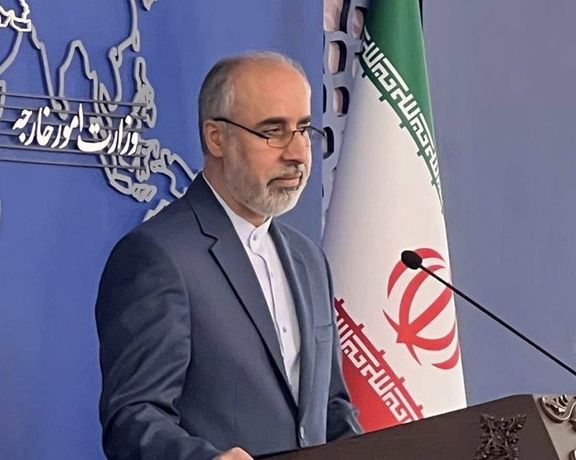
Iran insists it is doing a prisoner swap with the US in spite of the Biden administration’s categoric denials of the Iranian claims.
The Iranian foreign ministry says the "written agreement has been signed by the official representative of the United States” though has failed to specify who.
Iran’s Foreign Ministry Spokesman Nasser Kanaani told a weekly press conference on Monday that “a written agreement regarding the exchange of prisoners was signed through an intermediary” in March 2022.
However, in what can be seen as a back peddling, he claimed that the deal "has not been implemented by the US government so far for various reasons”, suggesting the announcement was perhaps premature.
"In recent weeks, there has been an exchange of indirect messages to update the deal," he added.
Iran’s foreign minister Hossein Amir-Abdollahian told state TV Sunday: “Regarding the exchange of current prisoners between Iran and the US, we have reached an agreement within the past few days. If everything goes well on the American side, I think we will witness a prisoner exchange in the near future. We see this as an entirely humanitarian case.”
A White House official immediately denied Amir-Abdollahian's statement calling it “a cruel lie”, but reiterated that the United States is committed to securing the release of Americans held in Iran.
Several Iranian-American citizens, including Siamak Namazi, Emad Sharqi, and Murad Tahbaz, are still imprisoned in Iran. In exchange for the release of the hostages, in addition to demanding money, the Islamic Republic plans to urge Washington to release the Iranians imprisoned in the US for circumventing sanctions or their involvement in terror activities.
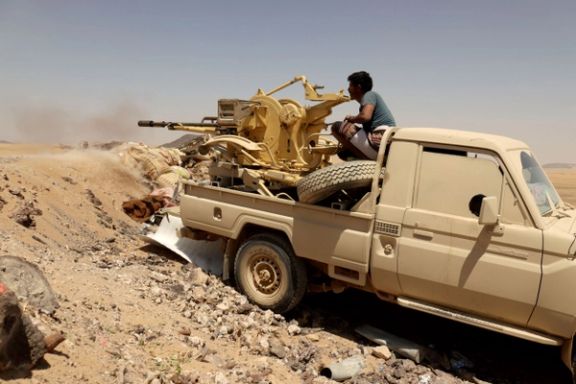
Agreement to restore relations with Iran does not mean disputes have been resolved, Saudi Foreign Minister Prince Faisal bin Farhan bin Abdullah has said.
In an interview with London-based Asharq Al-Awsat, bin Farhan emphasized that the agreement announced March 10 in Beijing with Chinese mediation and apparent guarantees, shows a joint desire by Iran and Saudi Arabia to “resolve disputes through communication and dialogue.”
He underscored, however, “This does not mean that an agreement has been reached to resolve all pending disputes between them.”
The biggest dispute is the conflict in Yemen where the two countries have fought each other indirectly for 8 years. Iran has backed Houthi rebels who pushed the internationally recognized government out of the capital and proceeded to conquer territories beyond their ethnic-religious traditional domain.
As Saudi Arabia backed the anti-Houthi forces with direct military involvement, Houthis used Iranian missiles and drones to launch hundreds of attacks against targets inside Saudi territory.
Most analysts believe that Riyadh wants to end the Yemen conflict as it embarks on an ever-ambitious plan of economic development, which needs security.
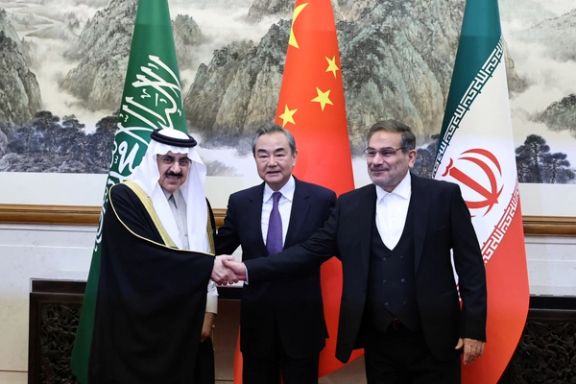
Executive Director of The Washington Institute Robert Sadloff in a long series of tweets Sunday referred to the Saudi quest for fast economic growth, quoting a senior Saudi official who said growth “can be sidetracked through insecurity, whether from Houthi missiles or the threat of [Iranian] nuclear blackmail.”
The Saudi foreign minister in his interview emphasized the economic factor. “We, in the Kingdom, hope to open a new chapter with Iran and bolster cooperation that would consolidate security and stability and push forward development and prosperity, not just in both our countries, but the entire region.”
Former Iranian diplomat Javid Qorban-Ogli told Didban website in Tehran Monday that ending the Yemen conflict is the top Saudi objective. “Saudi Arabia is a conservative regime which tries to avoid headaches. It pursues an ambitious development plan, which needs security and stability in the region.”
He also listed Tehran’s reasons for resuming relations with Riyadh. “Iran, the other side in this agreement, is facing a serious economic crisis, social and political chaos and multiple other crises because of its wrong foreign policy.” The third actor in this deal is China, he said, adding that Beijing seeks “energy security.”
Iran’s foreign ministry spokesman Naser Kanaani Monday reiterated that the agreement with the Saudis is the result of nearly two years of talks in Baghdad and Oman, taken to a higher level in recent months by Chinese mediation. His remark shows that although the two sides could have reached an agreement without Beijing, one or both countries at some point decided to have China some sort of guarantor.
Sadloff also argued in his tweets that Riyadh to an extent lost confidence in the Biden administration for securing Iran’s containment. As Tehran expands it nuclear program getting closer to a nuclear threshold state and Washington maintains restrictions on arms sales to Riyadh, Saudi Arabia’s confidence in receiving American protection decreased.
“Resuming ties with Iran is a dramatic expression of this lack of confidence in US,” Sadloff said.